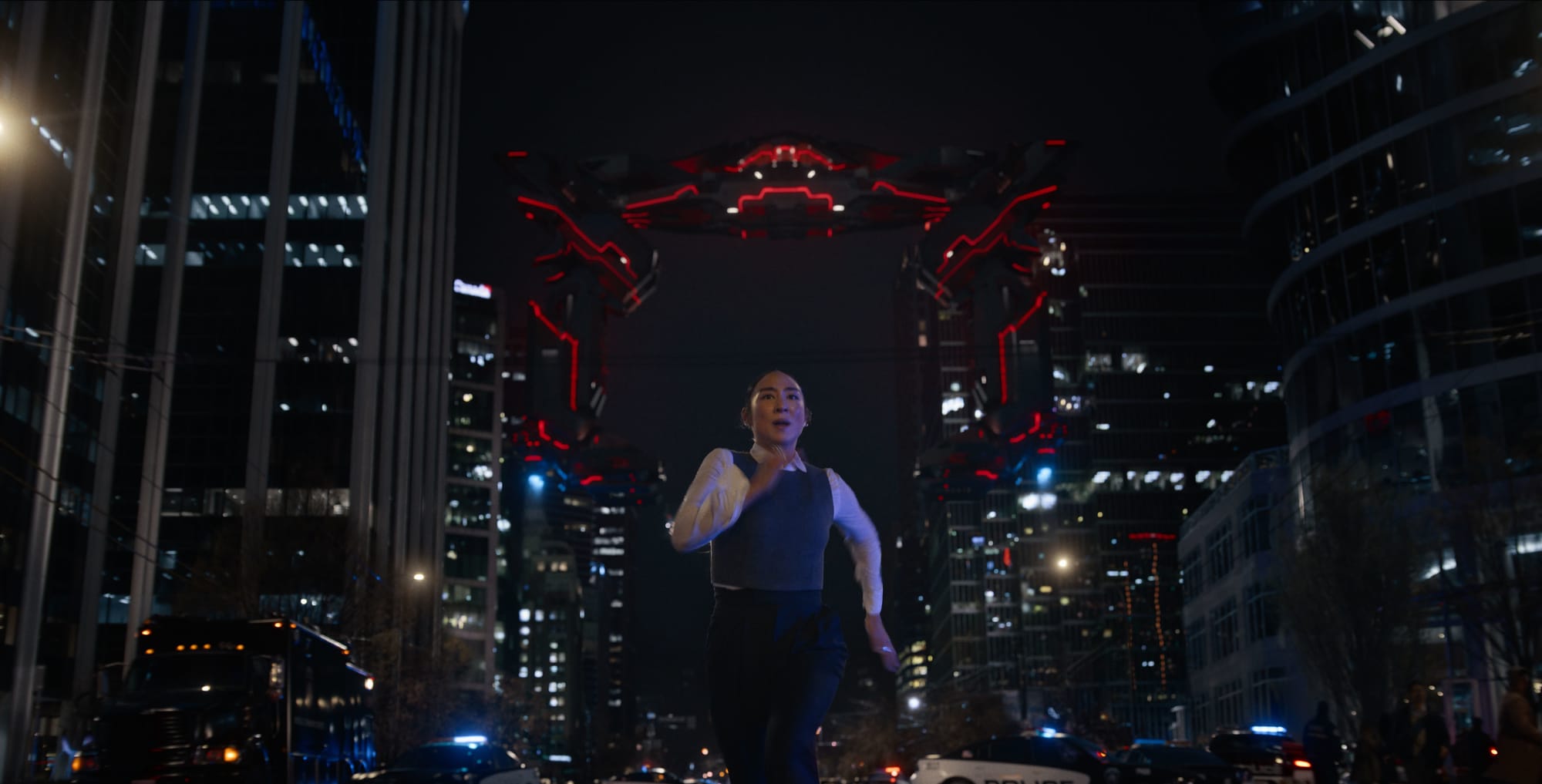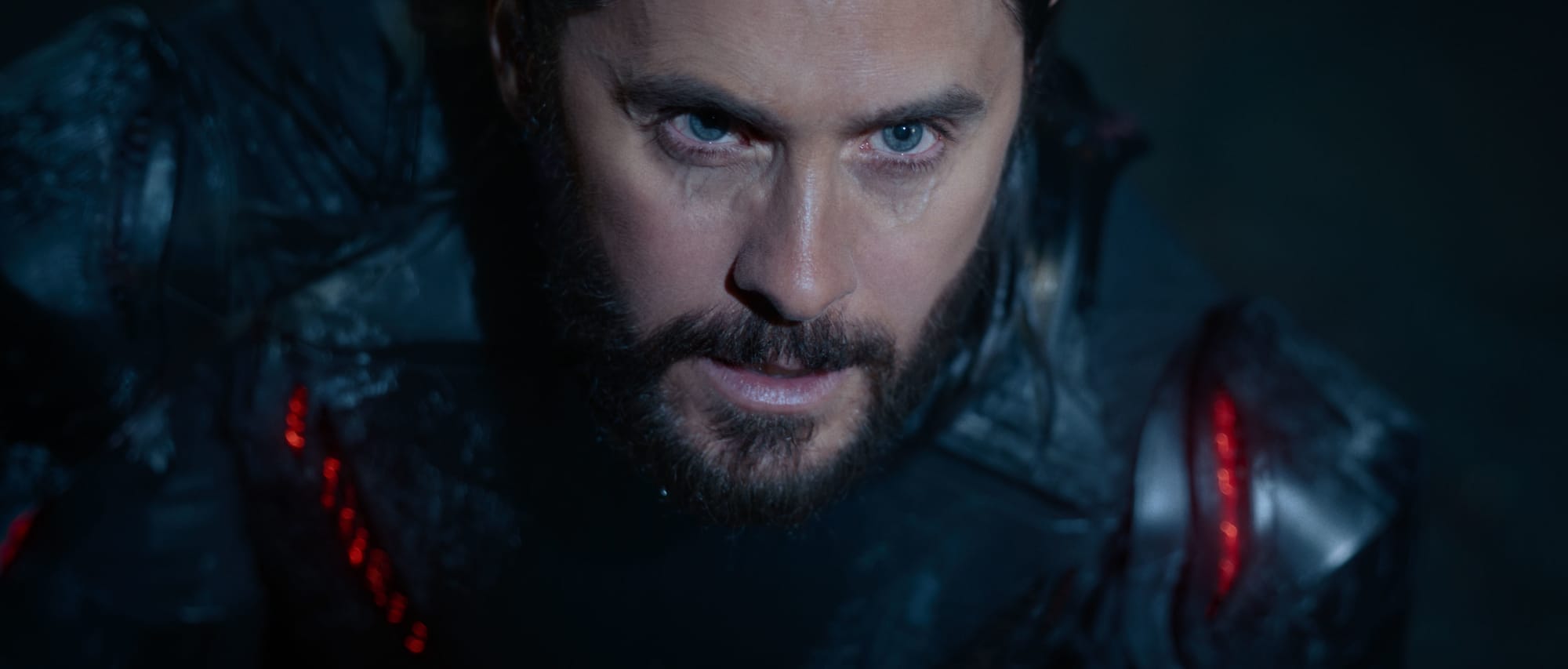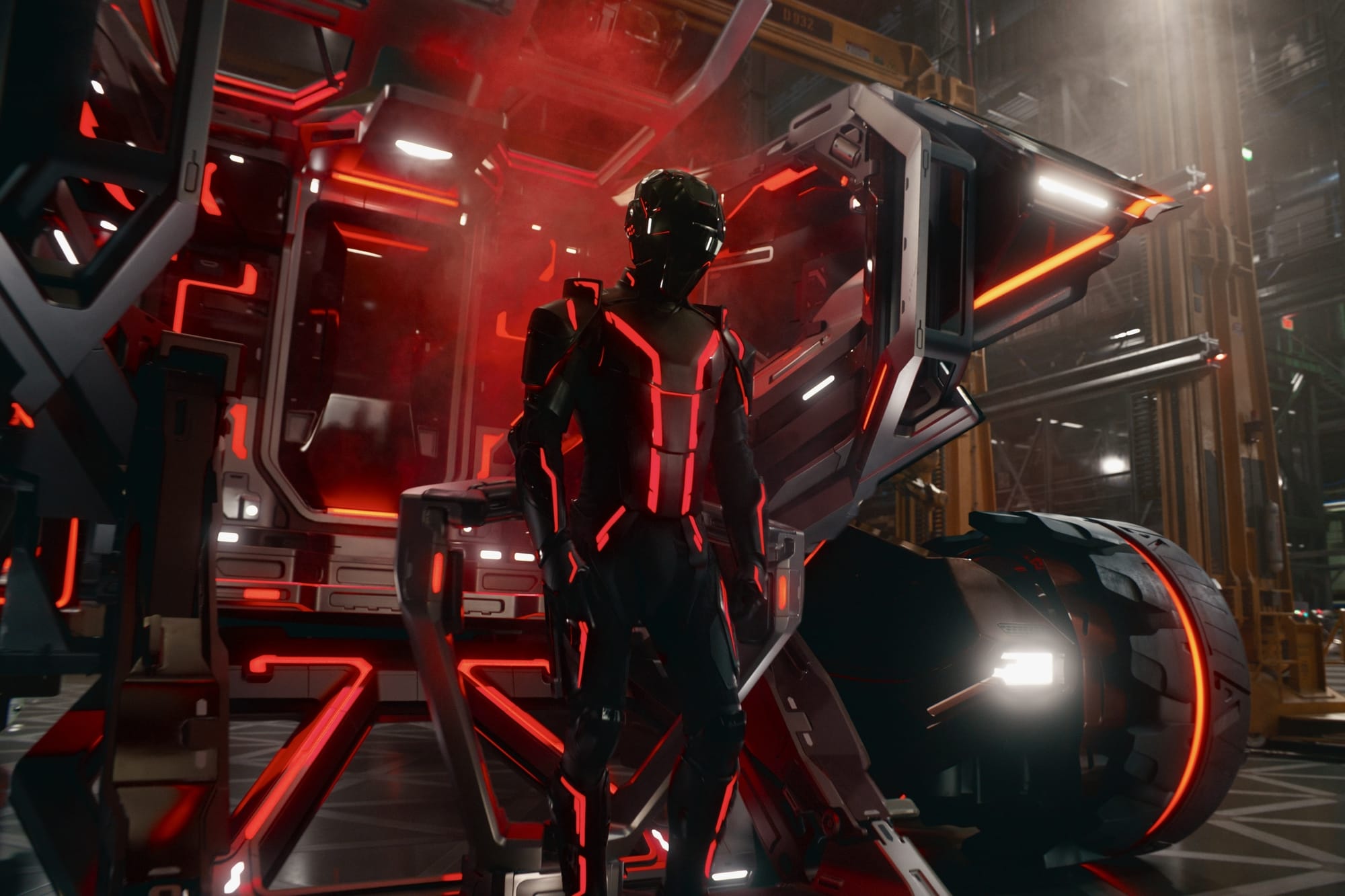Go on any of the various social media platforms and send out a random public message that you are not a fan of the current AI modern society incursion. There's a pretty high chance that you will be bombarded with replies ranging from “get with the times” to “AI is inevitable, so we'd better learn to live with it.” “Tron: Ares,” the second legacy sequel to the 1982 original, makes these points at two distinct junctures. It coincides with a rash of recent sci-fi films that are either trying to rationalize our recent infatuation with artificial intelligence or warn against it (the 2024 Netflix film “Atlas” seems to lean towards the former, for example).
However, any perceived hesitation shown within Joachim Rønning’s “Ares” is a red herring. Where the first two “Tron” entries displayed the complexities, beauty, and ultimate dangers of the Grid and its self-aware systems, the 2025 “don’t quite call this a soft reboot” entry argues to set AI free upon the actual world, and that it will find its way.
Before you get to the center of the conflict, two warring companies draw lines in the sand on how they want to use this technology. Julian Dillinger (Evan Peters), grandson of the antagonist of the original 1982 film, sees nothing but dollar signs. His company, Dillinger Systems, has developed a method to recreate digital objects from the Grid into the real world, all in the name of militarization. His new Master Control Program or Ares (played by a stoic Jared Leto) is billed as a “perfect, indispensable soldier."

While Ares is aware of his surroundings, he and his partner, Athena (Jodie Turner-Smith), are avatars tasked with carrying out the proposed war program for the highest bidder. One major caveat exists: digital imprints can only exist in the real world for 29 minutes. This, of course, irks Dillinger to no end and brings in the rival CEO of ENCOM, Eve Kim (Greta Lee). She is in search of the film’s prized MacGuffin, the Permanence Code, which will allow the AI programs to exist beyond any sort of time frame. For testing purposes, Eve and her work friend Seth (Arturo Castro) create digital trees that bear oranges (instead of apples) as test subjects.
The key to the whereabouts of the Permanence Code may lie deep in a forgotten server of the series’ longtime protagonist, Kevin Flynn (Jeff Bridges). As you can imagine, Dillinger is also interested in getting the code for himself and thus, “Ares” is consumed with the arms race that follows. Within all the glitz and glam of the impressive computer visual stylings, which have been a hallmark of the Tron trilogy, there’s little to chew on regarding substance. The stylish and sleek score from Nine Inch Nails can only do so much of the propulsive legwork. For Dillinger, Peters is mostly resigned to barking out commands as a digital avatar to the MCPs or ruminating on how to go from one plan to the next. There’s a bit of a power struggle regarding the company’s legacy with his mother, Elizabeth (Gillian Anderson), but that comes in dribs and drabs.
Eve has her own emotional side story concerning the loss of her older sister and continuing her life’s work. Lee’s character explains the technical jargon and (maybe) have time to express her emotions about what she’s lost. But then there is the actual character of Ares, which the film doesn’t seem to know what to do with. Leto’s performance as the AI program that decides to deviate from the script given by his maker is wooden. It’s supposed to give off a robotic-like essence, but “Ares” also hopes that the AI can understand emotions through 80s music and experience what life is like. Turner-Smith’s Athena is forever devoted to Dillinger’s mission for the sake of needing an antagonist.

It’s as if “Ares” is advocating for the “move fast and break many things” nature of artificial intelligence, but also saying the programs are the ones that will ultimately save us from the wreckage. In the end, who is really the winner here? Will the people on the ground ultimately benefit from ENCOM and Dillinger Systems' race to advance technology? What's funny is that the story ultimately lands on saying nobody is in control. Given the "Terminator" franchise, that's pretty bad for humankind.
The hook of "Ares" is the endless possibilities of the digital world bleeding into ours. Yet, the film itself feels utterly foreign to any reality it attempts to impose itself on - whether artificial or real.









